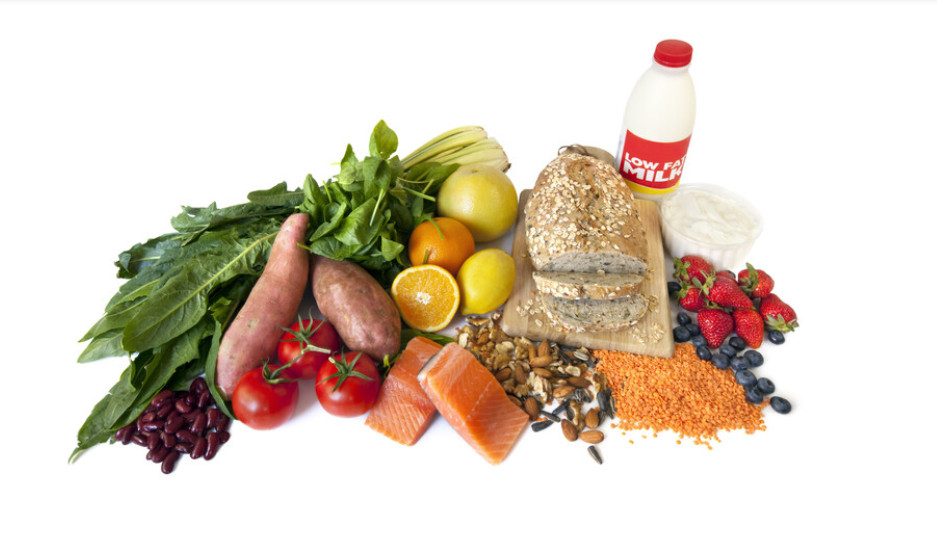It’s no secret that your diet influences your financial and health status. Recently, the medical community has come to accept the importance of nutrition in the lives of patients suffering from chronic conditions. This raises the question – “What if primary care providers could offer prescriptions for fresh produce to their patients?” This would provide additional assistance with the patients’ medical conditions. Primary Medical Care Center has studied this phenomenon!
One study has found that dietary interventions vs. statin therapy for preventing cardiovascular disease are much more cost-effective. The cost per life year gained was $20 to $900 for dietary interventions as opposed to $9,800 to $18,000 for statin therapy. Clearly, the costs are reduced immensely, but is this worth it for the patient regarding health benefits? That remains to be seen, and Primary Medical Care Center is at the forefront of food pharmacy research!
For more information about food pharmacies, call us at (305) 751-1500 or use our online contact form!
What Are Food Pharmacies?
You can think of food pharmacies as places where you can get fresh or canned food with a physician’s prescription. Usually, you’ll find these pharmacies in low-income areas or where the local population is food-insecure. The “food as medicine” movement has also come up with food pantries where you can get stock-donated food like canned foods, which usually contain sugar, preservatives, salt, and so on. They’re unregulated and less healthy, so to speak.
Food pharmacies, on the other hand, contain fresh produce, frozen food, proteins, and diet-friendly products. Moreover, most food pharmacies use a proactive coaching style aiming to change the patient’s dietary behaviors by offering cooking demonstrations and advice from dieticians. This helps patients make more health-oriented decisions, given that the advice comes from professionals.
Moreover, the “food prescription” also bears significant credibility in the patient’s eyes because it comes from a professional. Making lifestyle and dietary changes is difficult for everyone, including patients. But if the doctor recommends it and even offers a prescription, the patient is much more likely to conform. Patients won’t question food pharmacy prescriptions from an authoritative source like a PCP because they trust their doctors.
An article published by
the New England Journal of Medicine’s Catalyst journal cited another study that shows exciting findings. One food pharmacy targeting Type II diabetes, established in 2016, the Geisinger Fresh Food Pharmacy, has shown remarkable results. Participants in the study noticed a drop of 2.1% in the HbA1c levels when getting their food from the Geisinger Fresh Food Pharmacy, as opposed to a decline of 0.5-1.5% for patients using medication.
Physicians have also reported reduced blood pressure levels and significant lifestyle improvements (cooking at home, intense physical activities, etc.) in patients who got fresh produce from the Geisinger Fresh Food Pharmacy. But this food pharmacy isn’t the first of its kind. Prototypes of food pharmacies (fresh food prescriptions) have been going around for many years, and they’ve helped countless people lose weight, reverse diseases, and prevent other chronic conditions.
The Specter of Food Insecurity Factors that Influence the Patient’s Health
Not just healthy food determines whether a patient obtains maximum benefits from a food pharmacy. There are several other factors that, when combined, may lead to no help at all, such as:
- Do the patients know how to cook fresh produce?
- Do they have the tools and appliances for this?
- Are they independent enough to cook food alone?
- Will the patients stick to the prescription and optimize their diet correctly?
These questions don’t have clear answers, so primary care providers need to be aware of their patients’ needs. In this sense, Primary Medical Care Center has social workers available at all times who can assess all our patients’ social determinants of health. We also have clinicians who can locate and provide health resources to our patients.
We’re also considering implementing our own food pharmacy networks in our medical centers. This would provide patients with immediate access to fresh and healthy products that we prescribe. We believe this would increase our patient’s quality of life and provide clear benefits to their nutritional needs. It would also help alleviate symptoms of chronic medical problems or, at least, keep their health status in check.
Who Would Benefit the Most from Food Pharmacies?
Underserved communities, also known as food deserts, have difficulties finding healthy food either way, and food pharmacies would fill in this gap. We estimate that low-income patients and patients with food insecurity will benefit the most from food pharmacies. If properly governed by dietitians and nutritionists, higher-quality nutrition care can become a cornerstone in modern medicine.
You can call us at (305) 751-1500 or use our online contact form if you are interested in this topic and would like to know more about our efforts!
